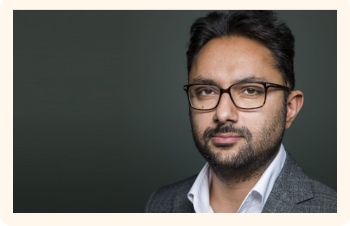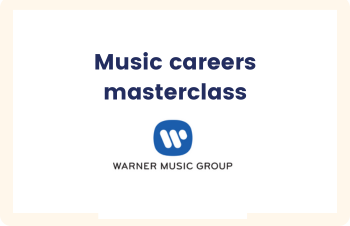There was a huge turnout from the Creative Access community last night who ventured through the hard rain to Shoreditch’s Oliver’s Yard to hear their questions answered by a panel of publishing industry professionals. And who better to shed light on the sector for our budding individuals than a panel of experts from across Sage Publications in part made up of Creative Access alumni? As an independent academic publisher that Creative Access has worked with to widen diversity for many years, their mission to ‘build bridges to knowledge’ is an inspiring one.
The panellists held a variety of roles; CA alumni Machoechoe Oteng – associate editor (journals editorial), Sehar Nizami – marketing communications manager, David Lin – associate product manager, and the chair of the evening, Kiren Shoman – senior vice president. The audience deserve a nod too, for having brought with them questions that covered decolonisation, career daydreaming and the rise of de-emphasising academia. Read on for the evening’s highlights and wisdom…
Why publishing?
Around 29,000 people are currently employed in publishing and 70,000 people within the (growing) sector. Research shows that TV and films that have been adapted from books are significantly more successful and popular than original screenplays. When senior vice president Kiren Shoman reads out these statistics, it reinforces that publishing in all its forms is important!
The humble beginning of Sage is worth a read and explains its specific commitment to social science research. ‘Most people see trade publishing as the sexy place to go to, we want to change your mind about that!’ said Shoman who detailed the specifics of what academic publishing covers: books, journals, and library resources. She also emphasised the different jobs in publishing that one can have at Sage; agenting, audio, digital development, marketing, sales, the list goes on. Panellist and associate product manager, David Lin, proved to be great insight into the modern roles within publishing as he discussed his work in developing the vision of the company, product strategy and how they’re using augmented reality -in-training.
The major takeaway? Set your sights wide in the sector and keep an eye out for a number of (TBA) internships launching at Sage via Creative Access in various departments this summer. Sign up to our opportunities board if you haven’t already!
Breaking barriers and big breaks
‘I broke the door down’ said marketing communications manager Sehar Nizami, referencing her fierce determination to get into publishing – which is sometimes thought to be a competitive and exclusive club. Conversation surrounding access dominated a big portion of the evening and the panellists had great insight. Nizami prefaced her story with ‘please don’t do this’ but told the audience she had called every publishing house and pleaded for any kind of experience, until eventually ‘someone got so tired of my voice they put me through to HR’. She graciously said how thankful she was to CA for the internship that followed later in her career, as was fellow alumni Machoechoe Oteng, associate editor at Sage. For Oteng, her career journey ‘was not a narrow path’ and as a history and philosophy graduate, she had no background in publishing, but applied for a role in the production technology development straight out of university and via a CA internship has worked her way to associate editor.

How to sell your experience
How can I fit half a lifetime of work onto a one-page CV? How can I show that raising children is invaluable experience? Is my role as a bookseller for a large retailer enough for an entry-level role? Do I have to be ‘young’ to be an intern?
These were all excellent questions from the audience and we learnt that according to Shoman and those at Sage: ‘it’s what you can be, not what you’ve proven to be’, so you don’t need all the experience when applying, instead focus on your potential. A lot of publishers don’t require a degree for an entry-level role, they want your appetite and passion. In response to the question of retail experience in bookselling, Shoman advised highlighting the transferrable skills that a role gives an individual and how it would translate to a sales position at a publisher, ‘there’s no reason you shouldn’t apply if you can demonstrate an interest and how that interest translates to skills.’
In response to the question of raising children, the answer was helpful for everyone in the room. Shoman answered that when you have a variety of professional experiences, which includes raising children, you don’t want to list them all on a CV. You’ve lost your reader if your CV is four pages long. You need to tailor it for the role you’re applying for, so pick specific experiences that demonstrate that the relevant value and skills you bring. Nizami suggested keeping it brief with bullet points and bringing in the ‘human’ element to your application in the cover letter i.e. ‘I would also bring being a parent into this role in X ways’.
As for being a certain age and applying for internships, Shoman said that if you’re comfortable applying for an entry-level role then do so, and fight back ageism wherever you see it.
Top tips
Hot off a promotion, Lin was passionate about the ‘growth mindset’ and how a student-like curiosity and pursuit of continual growth can project your career further and help avoid staying stagnant. He suggested weekly meetings with your manager to discuss your strengths and areas for development. Nizami echoed this with the advice to get involved in as many activities and projects as possible: ‘Be empowered to submit your interests and if something isn’t already set up, set it up yourself’. Oteng advised shadowing people in other departments and emphasising your passion. She herself didn’t meet all the requirements for her role but she showed her passion and why they needed her. Shoman stressed the importance of researching the company you’ve applied to and that in your cover letter it will matter if you’ve clearly spent time getting to know them.
There were many more questions and interesting discussions, which you can catch up on by watching the footage of the evening which we’ll release soon!
A big thank you to our panellists, our community and to Sage Publications for opening up your offices, wisdom and SMEG fridge of drinks and snacks to us all. See you at the next one!
Watch the masterclass here:




